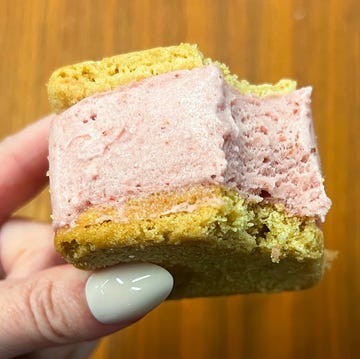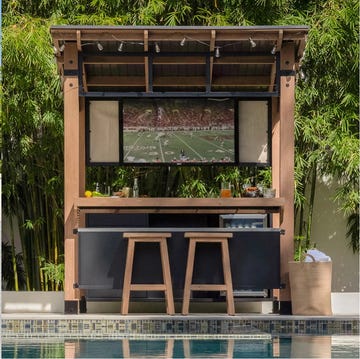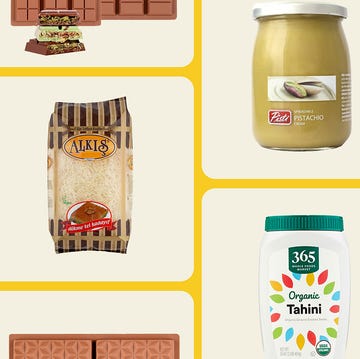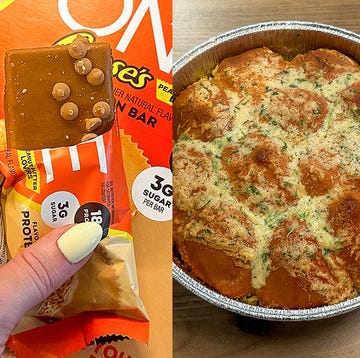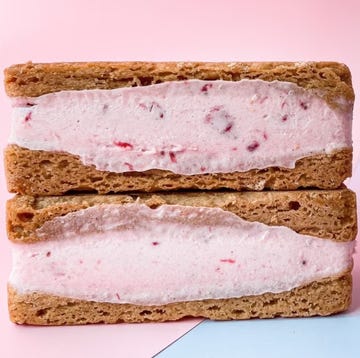The minute you walk into a Costco, you can’t help but be mesmerized by the colorful nature scenes on all the TVs. You turn around and find the exact socks you’ve been looking for—eight pairs for only $15. And you can’t help but pick up one of the adorable Squishmallows that are peering at you from across the aisle. These feelings of calm, curiosity, and well-being remind us why many of us refer to shopping as “retail therapy.” A trip to a megastore that sells seemingly everything like Costco seems to have the power to put us in a better mood instantly.
“Consumers often seek self-improvement in their lives. Whether that improvement is realized or not, the desire to be better, whether in relationships, lifestyle, or personal growth, serves as a cognitive framework that influences decision-making,” says Michael Barbera, a consumer psychologist and assistant professor of marketing at The University of North Carolina at Pembroke. “Consumers make choices based on who they are today and who they aspire to be tomorrow.”
This can be an easy feeling to harness when shopping at Costco. After all, you’re buying superfood powder in bulk for all your future health-boosting smoothies and home goods that have been on your wish list that look way more expensive than they actually are. Shopping in bulk at Costco has this uncanny way of making us feel happy, often to the benefit of our future selves. But what is “Costco therapy” exactly, and how does it differ from traditional forms of retail therapy?
What Is “Costco Therapy”?
Consumer psychologist Vanessa Patrick, a professor of marketing at the University of Houston and president of the Society of Consumer Psychology, says that buying in bulk makes people feel that they are deriving value and getting a good deal. “At Costco, happiness comes from the knowledge that you are getting high-quality, branded products at a lower cost per unit than at a regular grocery store,” she adds.
In addition, Barbera says that Costco frequently limits the availability of products, creating a sense of scarcity and fear of missing out, aka FOMO, among shoppers.
“When a product is available at Costco, it is often for a limited time, reinforcing the perception of exclusivity,” he observes. “Consumers are drawn to exclusivity, even if they may express a preference for inclusivity. Some products are available only at Costco, often in unique sizes or packaging, and for a limited period. Once they’re gone, consumers may not have access to them again, increasing the urgency to purchase.”
There’s also the fact that shopping at Costco can turn on the brain’s mesolimbic system, or “reward center.” Barbera says that this can derive from your perception of value.
“Consumers may not always seek the absolute lowest price, yet they strongly prefer the feeling of getting a good deal. If a purchase feels rewarding, they are more likely to return and shop again,” he says.
Is It Actually Good for Mental Health?
Even if you’re calling it “Costco therapy,” it’s important not to view shopping there as actual therapy that can benefit your mental health. While it can create small bursts of happiness—Barbera says that if you view a trip to Costco as an enjoyable experience, browsing products could lead to a positive outcome—generally, it shouldn’t be relied upon to improve your entire state of being. This goes for any form of shopping. In fact, there are some drawbacks to consider.
“Nearly any activity that is ethical, legal, and not a vice could contribute to well-being. However, shopping has the potential to become addictive, as retailers, including Costco, use persuasive strategies to encourage purchases, sometimes leading consumers to spend beyond their means,” Barbera points out.
And there’s the fact that this feeling of happiness only lasts for the short term. Then reality tends to set in.
“We overestimate how much body lotion, Spam, or tortilla chips our family will actually use or eat before the expiration date,” Patrick says. “This can result in waste. There is also a risk of buying a lot of something that you may not like. Costco mitigates this through extensive sampling, but the downside of bulk buying is product and food waste.”
Instead of turning to retail therapy, at Costco or elsewhere, Patrick recommends seeking out “simple pleasures” in your daily life, something she has written a paper on.
“Simple pleasures around us can increase our daily happiness,” she says, listing hitting green lights all the way to work and heart-shaped pancakes as examples. “These can fulfill us and reduce our need for retail therapy.”
Many of us certainly benefit from shopping at Costco—it can help us stick to a budget or not need to stock up on essentials as often—and these are good reasons to continue shopping at the warehouse club. But it’s equally important to remember to seek out those moments of happiness beyond the Costco aisles.
Follow House Beautiful on Instagram and TikTok.
Shelby Deering is a freelance lifestyle writer who frequently covers home design and decor for national publications. She has worked as a full-time freelance writer for over a decade, and has worked in the industry for nearly 20 years, writing home tours, interviewing top designers, and beautifying her own home. She holds a master's degree in Journalism and Mass Communication from the University of Wisconsin-Madison, and when she's not writing, you can find her at thrift stores and flea markets, running, or exploring local trails in Madison, Wisconsin, with her husband and corgi, Dolly.





